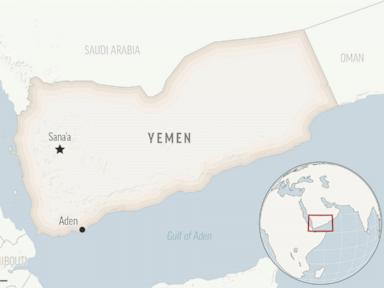Now Reading: US airstrikes targeting a Yemeni oil port killed 20 people, Houthis say
-
01
US airstrikes targeting a Yemeni oil port killed 20 people, Houthis say
US airstrikes targeting a Yemeni oil port killed 20 people, Houthis say

In Dubai, United Arab Emirates, the Houthi rebels in Yemen reported that 20 people were killed and 50 others were wounded in U.S. airstrikes on the Ras Isa oil port. This attack, which was confirmed by the U.S. military’s Central Command, marks one of the highest death tolls in the campaign initiated by President Donald Trump since March 15. Additionally, the Iranian-backed Houthis launched a missile towards Israel that was intercepted, as reported by the Israeli military. The conflict in Yemen escalated further as the U.S. accused a Chinese satellite company of supporting Houthi attacks, which China did not immediately acknowledge.
The Houthi’s al-Masirah satellite news channel broadcasted distressing footage of the attack aftermath at the Ras Isa port, showing casualties scattered around the area. The U.S. Central Command stated that the airstrikes aimed to cut off a revenue source for the Houthis and were not intended to harm the Yemeni people. The port, located in Yemen’s Hodeida governorate, serves as a vital point for oil transportation and has been a target of recent U.S. airstrikes.
The Houthis condemned the U.S. attack, calling it an unjustified act that violated Yemen’s sovereignty. In response to the ongoing conflict, the U.S. State Department issued a warning regarding oil shipments to Yemen, emphasizing the prohibition of supporting terrorist organizations like the Houthis.
The U.S. operation against the Houthis, under President Trump, has been extensive, targeting not only launch sites but also ranking personnel and urban areas. This campaign started after the rebels threatened to attack Israeli ships, disrupting trade routes through the Red Sea corridor. The U.S. airstrikes are part of a broader strategy to pressure Iran concerning its nuclear program, with negotiations between Iran and the U.S. scheduled to take place in Rome.






